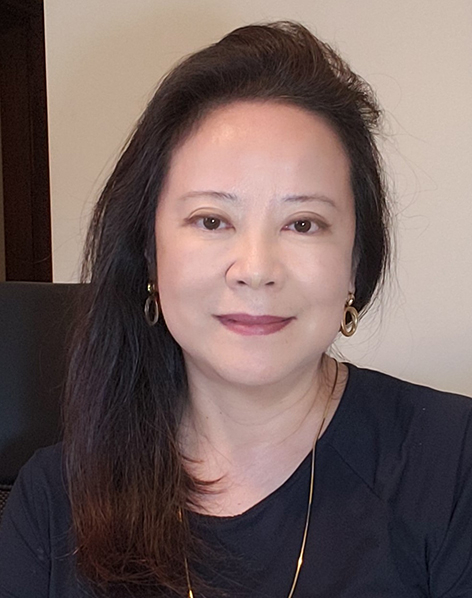What do I like about Japanese literature?
Lica Hashimoto (Brazil)
 I was introduced to Japanese literature during my studies in the Language and Literature of Japan course at the department of Oriental Letters in the Faculty of Philosophy, Language and Literature and Human Sciences at the University of São Paulo.
I was introduced to Japanese literature during my studies in the Language and Literature of Japan course at the department of Oriental Letters in the Faculty of Philosophy, Language and Literature and Human Sciences at the University of São Paulo.
That happened towards the end of the 1980s, when the world, was changing quickly, getting ready for the turn of the century. People were predicting the end of the world, and some were asking for a better world while others were screaming in despair, without being able to put their pain into words.
I belong to a generation that has inherited the disillusionment and resentment of our ancestors who witnessed the tragic outcome of a dream fueled by the promise that modernity and its Enlightenment pretensions would be enough to achieve progress, democracy and the emancipation of mankind. We have inherited the collective memory and cultural diversity of various peoples and nations, resulting from the great international migrations that have marked world history.
It was in this context that I was introduced to Japanese literature and, since then, it has become a valuable and distinctively exceptional resource. Valuable, for always being willing to share its stories and experiences. Distinctively exceptional, for introducing me to the time machine that transports me to other times and spaces.
I had an emotional motivation for planning my first trip.
I'm Japanese's granddaughter. My grandparents on my mother's and father's sides were born towards the end of the 19th century and migrated to Brazil in 1917 and 1926, respectively, on a one-way trip. They were born in the middle of the Meiji Era (1868-1912) and lived part of their youth in the Taishō Era (1912-1926). This time marked a period of political, economic, and social change. It ended the shogunate and transformed Japan from an agrarian economy to an industrial and capitalist country. The transformation led to accelerated modernization and westernization, which was promoted by the emerging Japanese middle class.
Just before my twentieth birthday, I had a crisis about my identity as a Japanese-Brazilian heritage. My friend suggested that I get to know the Japan of my grandparents. That's when I discovered Izumi Kyōka, Tayama Katai, Shimazaki Tōson, Mori Ōgai. Of all the authors, I was most enchanted by Higuchi Ichiyō, Natsume Sōseki, and Akutagawa Ryūnosuke.
The writings of these authors introduced me to the Japan of my ancestors. While I visited, I met people who, like my grandparents*, participated in history anonymously. Understanding Japan's history from this perspective made my connection to literature stronger. It also gave me empathy towards my grandparents and a connection with the collective memory they were a part of. Learning about my ancestors' history helped me overcome my identity crisis.
The second trip was prompted by intellectual curiosity.
During my study of literature, I was exposed to both classical and contemporary Japanese literature. That is when I learned that the tales of the Union Deities Izanami and Izanagi, along with those of the Sun Goddess Amaterasu and the Sea God Susanoo, which my grandparents used to recount to me when I was a child, were documented in the Kojiki (Records of Ancient Matters, 712) and the Nihonshoki (Chronicles of Japan, 720), which are the earliest sources on Japanese history and mythology.
Year after year, I keep finding books that are truly inspirational and that change our view of the world forever. They make us think deeply about critical human issues like life and death, love and hate, peace and war. That's how I discovered Shiga Naoya, Tanizaki Jun'ichirō, and Kobayashi Takiji, who introduced me to Dazai Osamu, Mishima Yukio, Kawabata Yasunari, and Oe Kenzaburo. The authors' works revealed literature that was notably distinct from contemporary Western fiction founded on European Realism and global Modernism
A third journey is motivated by the search for self-knowledge.
Literature displays considerable vitality and diversity. At this point in my life, I value everyday life and its representation, including banal details and the common emotions that inspire us to consider the world as fundamentally universal, yet still mindful of local matters and seen from various angles. I am currently in a phase of life in which I seek to comprehend the world around me. In lieu of definite truths, I examine other individuals' experiences to gain insight, albeit only partially, and to grasp the situation without the pressure of exhaustively seeking complete congruity.
The writers who are helping me to reflect on my place in the here-and-now are Nishi Kanako, Yu Miri, Matayoshi Naoki, and Haruki Murakami. Not forgetting the works of women writers such as Yoshimoto Banana, Murata Sayaka, Minato Kanae, and Kawakami Hiromi. These writers gradually emerged in the post-war period and present a Japan that reveals the dark presence of violence related to feelings of anxiety and frustration, particularly among the younger generation. They suffer the effects of the recession on social and interpersonal relations in their daily lives, generating a disturbing malaise in society.
Literature helps me to understand others and myself better. It sheds light on reality and demonstrates that alternate realities are feasible, freeing readers from their restrictive context and empowering them to facilitate historical transformations.
* The initial wave of Japanese immigrants landed on Brazilian soil on August 18, 1908. My grandparents, both maternal and paternal, relocated in 1917 and 1926, respectively. Presently, Brazil boasts the highest number of Japanese descendants outside of Japan, estimated at approximately 1.5 million, while Japan hosts the third-largest Brazilian populace abroad, numbering approximately 200,000 individuals.
(University of São Paulo)
